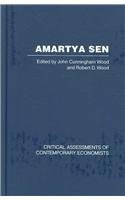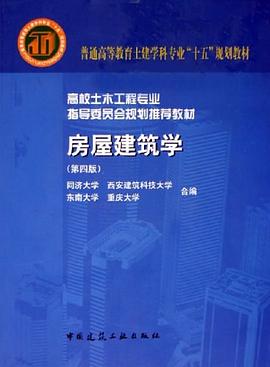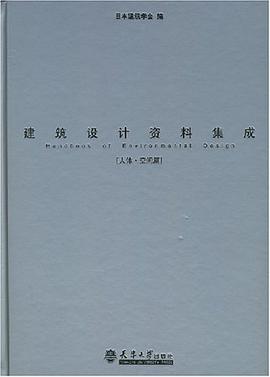VOLUME I Introduction Part 1--By Sen 1. Amartya K. Sen, 'A possibility theorem on majority decisions', "Econometrica", 34, 2, 1966, pp. 491--9 2. Amartya K. Sen, 'Quasi-transivity, rational choice and collective decisions', "Review of Economic Studies", 36, 1969, pp. 381--92 3. Amartya K. Sen and Prasanta K. Pattanaik, 'Necessary and sufficient conditions for rational choice under major decision', "Journal of Economic Theory", 1, 1969, pp. 178--202 4. Amartya K. Sen, 'Choice functions and revealed preference', "The Review of Economic Studies", 38, 3, 1971, pp. 307--17 5. Amartya K. Sen, 'Behavior and the concept of preference', "Economica", 40, 159, 1973, pp. 241--59 6. Amartya K. Sen, 'Social choice theory: A re-examination', "Econometrica", 45, 1, 1977, pp. 53--89 7. Amartya K. Sen, 'Rational fools: A critique of the behavioral foundations of economic theory', "Philosophy"" and Public Affairs", 6, 4, 1977, pp. 317--44 8. Amartya K. Sen, 'On weights and measures: Information constraints in social welfare analysis', "Econometrica", 45, 7, 1977, pp. 1539--72 9. Amartya K. Sen, 'The welfare basis of real income comparisons: a survey', "Journal of Economic Literature", 17, 1, 1979, pp. 1--45 10. Yew-Kwang Ng, 'Welfarism: A defence against Sen's attack', "The Economic Journal", 91, 362, 1981, pp. 527--30 11. Amartya K. Sen, 'A reply to "Welfarism: A defence against Sen's attack"', "The Economic Journal", 91, 1981 pp. 531--5 12. Amartya K. Sen, 'Liberty and social choice', "The ""Journal"" of Philosophy", 80, 1, 1983, pp. 5--28 13. Amartya K. Sen, 'Well-being, agency and freedom: The Dewey lectures', "The ""Journal"" of Philosophy", 82, 4, 1985, pp. 169--221 14. Amartya K. Sen, 'Goals, commitment and identity', "Journal of Law, ""Economics and Organization", 1, 2, 1985, pp. 341--55 15. Amartya K. Sen, 'Internal consistency of choice', "Econometrica", 61, 3, 1993, pp. 495--521 16. Amartya K. Sen, 'Markets and freedoms: Achievements and limitations of the market mechanism in promoting individual freedoms', "Oxford Economic Papers", 45, 4, 1993, pp. 519--41 17. Amartya K. Sen, 'The formulation of rational choice', "The American Economic Review", 84, 2, Papers and Proceedings of the Hundred and Sixth Annual Meeting of the American Economic Association, 1994, pp. 385--90 18. Amartya K. Sen, 'Amiya Kumar Dasgupta (1903--1992)', "The American Economic Journal", 104, 426, 1994, pp. 1147--55 19. Amartya K. Sen, Rationality and social choice', "The American Economic Review", 85, 1, 1995, pp. 1--24 20. Amartya K. Sen, 'How to judge voting schemes', "The Journal of Economic Perspectives", 9, 1, 1995, pp. 91--8 21. Amartya K. Sen, 'Maximization and the act of choice', "Econometrica", 65, 4, 1997, pp. 745--79 22. Amartya K. Sen, 'The possibility of social choice', "The American Economic Review", 89, 3, 1999, pp. 349--78 VOLUME II Part 2--General 23. Arjo Klamer, 'A conversation with Amartya Sen', "The Journal of Economic Perspectives", 3, 1, 1989, pp. 135--40 24. Robert Sugden, 'Welfare, resources, and capabilities: A review of inequality reexamined by Amartya Sen', "Journal of Economic Literature", 31, 4, 1993, 1947--63 25. Amiya Kumar Bagchi, 'Amartya Kumar Sen and the human science of development', "Economic and Political Weekly", 33, 49, 1998, pp. 3139--50 26. Anthony B. Atkinson, 'The contributions of Amartya Sen to welfare economics', "Scandinavian Journal of Economics", 101, 2, 1999, pp. 173--90 27. Ashima Goyal, 'Interpreting Amartya Sen's work', "Economic and Political Weekly", 34, 15, 1999, pp. 928ff. 28. Anon, 'Amartya Sen', "Feminist Economics", 9, 2--3, 2003, pp. 1--2 29. Bina Agarwal, Jane Humphries and Ingrid Robeyns, 'Exploring the challenges of Amartya Sen's work and ideas: An introduction', "Feminist Economics", 9, 2--3, 2003, pp. 3--12 30. Sakiko Fakuda-Parr, 'The Human Development paradigm: Operationalizing Sen's ideas on capabilities', "Feminist Economics", 9, 2--3, 2003, pp. 301--17 31. Isaac Levi, 'Amartya Sen', "Synthese", 140, 1--2, pp. 61--7 Part 3--Development, Including Food and Health 32. David A. Crocker, 'Functioning and capability: The foundations of Sen's and Nussbaum's development ethic', "Political Theory", 20, 4, 1992, pp. 584--612 33. Paul Streeten, 'Human development: Means and ends', "The American Economic Review", 84, 2, Papers and Proceedings of the Hundred and Sixth Annual Meeting of the American Economic Association, 1994, pp. 232--7 34. Mozaffar Qizilbash, 'Capabilities, well-being and human development: A survey', "Journal of Development Studies", 33, 2, 1996, pp. 143--62 35. Jenny Edkins, 'Legality with a vengeance: Famines and humanitarian relief in "complex emergencies"', "Millennium Journal of International Studies", 25, 3, 1996, pp. 547--75 36. Martin Ravallion, 'Famines and economics', "Journal of Economic Literature", 35, 3, 1997, pp. 1205--42 37. James E. Foster, 'Absolute versus relative poverty', "The American Economic Review", 88, 2, Papers and Proceedings of the Hundred and Tenth Annual Meeting of the American Economic Association, 1998, pp. 335--41 38. E. A. Wrigley, 'Corn and crisis: Malthus on the high price of provisions', "Population and Development Review", 25, 1, 1999, 121--8 39. Shyam J. Kamath, 'Indian development and poverty: Making sense of Sen et al.', "Critical Review", 13, 3--4, 1999, pp. 315--36 40. Vicente Navarro, 'Development and quality of life: A critique of Amartya Sen's "Development as Freedom', International Journal of Health Services", 30, 4, 2000, pp. 661--74 41. Richard N. Cooper, 'The road from serfdom: Amartya Sen argues that growth is not enough', "Foreign Affairs", 79, 1, 2000, pp. 163--7 42. Paul Streeten, 'Freedom and welfare: A review essay on Amartya Sen, "Development as Freedom"', "Population and Development Review", 26, 1, pp. 153--62 43. Brigitte Granville, 'Freedom's charm', "World Today", 56, 3, pp. 23--4 44. Christina H. Gladwin, Anne M. Thomson, Jennifer S. Peterson and Andrea S. Anderson, 'Addressing food security in Africa via multiple livelihood strategies of women farmers', "Food Policy", 26, 2, 2001, pp. 177--207 45. Katherine L. Frohlich, Ellen Corin and Louise Potvin, 'A theoretical proposal for the relationship between context and disease', "Sociology of Health and Illness", 23, 6, 2001, pp. 776--97 46. Peter Evans, 'Collective capabilities, culture, and Amartya Sen's "Development as Freedom', Studies in Comparative International Development", 37, 2, 2002, pp. 54--60 47. Frances Stewart and Severine Deneulin, 'Amartya Sen's contribution to development thinking', "Studies in Comparative International Development", 37, 2, 2002, pp. 61--70 48. Alan Williams, 'Comment on Amartya Sen's "why health equity"', "Health Economics", 12, 1, 2003, pp. 65--6 49. Marianne T. Hill, 'Development as empowerment', "Feminist Economics", 9, 2--3, 2003, pp. 117--35 50. Des Gasper and Irene van Staveren, 'Development as freedom: And as what else?', "Feminist Economics", 9, 2--3, 2003, pp. 137--61 51. Mark B. Tauger, 'Entitlement, shortage and the 1943 Bengal famine: Another look', "Journal of Peasant Studies", 31, 1, 2003, pp. 45--72 52. Markku Lehtonen, 'The environmental--social interface of sustainable development capabilities, social capital, institutions', "Ecological Economics", 49, 2, 2004, pp. 199--214 VOLUME III Part 4--Gender 53. Des Gasper, 'Culture and development ethics: Needs, women's rights, and western theories', "Development and Change", 27, 4, 1996, pp. 627--61 54. Douglas A. Hicks, 'Gender, discrimination, and capability: Insights from Amartya Sen', "Journal of Religious Ethics", 30, 1, 2002, pp. 137--54 55. Stephen Klasen and Claudia Wink, 'A turning point in gender bias in mortality? An update on the number of missing women', "Population and Development Review", 28, 2, 2002, pp. 285--312 56. Fabienne Peter, 'Gender and the foundations of social choice: The role of situated agency', "Feminist Economics", 9, 2--3, 2003, pp. 13--32 57. Martha C. Nussbaum, 'Capabilities as fundamental entitlements: Sen and social justice', "Feminist Economics, "9, 2--3, 2003, pp. 33--59 58. Ingrod Robeyns, 'Sen's capability approach and gender inequality: Selecting relevant capabilities', "Feminist Economics", 9, 2--3, 2003, pp. 61--92 59. Vegard Iversen, 'Intra-household inequality: A challenge for the capability approach?', "Feminist Economics", 9, 2--3, 2003, pp. 93--115 60. Austreberta Nazar Beutelspacher, Emma Zapata Martelo and Veronica Vazquez Garcia, 'Does contraception benefit women? Structure, agency, and well-being in rural Mexico', "Feminist Economics", 9, 2--3, 2003, pp. 213--38 61. Stephen Klasen and Claudia Wink, '"Missing women": Revisiting the debate', "Feminist Economics", 9, 2--3, 2003, pp. 263--99 VOLUME IV Part 5--Politics and Ethics 62. John Christman, 'Constructing the inner citadel: Recent work on the concept of autonomy', "Ethics", 99, 1988, pp. 109--24 63. Robert Grafstein, 'Missing the archimedean point: Liberalism's institutional presuppositions', "American Political Science Review", 84, 1, 1990, pp. 177--93 64. Charles Gore, 'Entitlement relations and unruly social practices: A comment on the work of Amartya Sen', "Journal of Development Studies", 20, 3, pp. 429--60 65. Daniel M. Hausman and Michael S. McPherson, 'Taking ethics seriously: Economics and contemporary moral philosophy', "Journal of Economic Literature", 31, 2, 1993, pp. 671--731 66. William James Booth, 'On the idea of the moral economy', "The American Political Science Review", 88, 3, 1994, pp. 653--67 67. Julie A. Nelson, 'Feminism and economics', "The Journal of Economic Perspectives", 9, 2, 1995, pp. 131--48 68. Shira B. Lewin, 'Economic and psychology: Lessons for our own day from the early twentieth century', "Journal of Economic Literature", 34, 3, pp. 1293--323 69. Anon, 'Introduction: Social policy and social protection', "International Labour Review", 139, 2, 2000, pp. 113--17 70. Jerry Evensky, 'Adam Smith's lost legacy', "Southern Economic Journal", 67, 3, 2001, pp. 497--517 71. Philip Pettit, 'Symposium on Amartya Sen's philosophy: 1. Capability and freedom: A defence of Sen', "Economics and Philos...
· · · · · · (
收起)






















